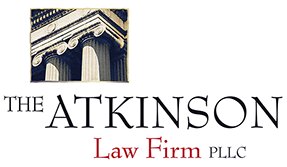Best Toxic Mold Lawyers in North Carolina
Share your needs with us, get contacted by law firms.
Free. Takes 2 min.
Or refine your search by selecting a city:
List of the best lawyers in North Carolina, United States
About Toxic Mold Law in North Carolina, United States
Toxic mold has become a growing concern for homeowners, renters, landlords, and business owners in North Carolina. Mold can develop in damp areas and, when left untreated, may produce dangerous spores that compromise health and damage property. North Carolina has specific guidelines and legal standards related to mold remediation, landlord-tenant responsibilities, and property disclosures in real estate transactions. Understanding your rights and responsibilities under state and local law is crucial when dealing with toxic mold issues in your home or workplace.
Why You May Need a Lawyer
There are numerous situations where consulting an attorney experienced in mold law can be beneficial. Common scenarios include:
- Landlord-tenant disputes over the presence or remediation of toxic mold.
- Claims for property damage or health issues resulting from mold exposure.
- Real estate transactions where mold was not disclosed or properly addressed.
- Insurance claims denial for mold-related damage.
- Injuries or illnesses linked to mold exposure in rental or commercial spaces.
- Contractor disputes related to mold remediation services.
A lawyer can help you understand your legal rights, negotiate settlements, or represent your interests in court. They can guide you through the necessary steps to seek compensation or compel remediation.
Local Laws Overview
In North Carolina, laws regarding toxic mold are influenced by a blend of state statutes, housing codes, and case law:
- There are no specific state-wide statutes that set mold exposure limits, but landlords have a duty to provide habitable housing, which typically means addressing significant mold problems.
- Landlords must respond to tenant complaints about mold and may be required to remediate serious infestations, particularly if caused by ongoing leaks or failures in structural maintenance.
- During real estate transactions, sellers have a duty to disclose known material defects such as ongoing or past mold issues.
- North Carolina’s Residential Rental Agreements Act and the State Building Code play important roles in defining landlord and property owner obligations regarding mold and moisture-leak repairs.
- Some local counties or cities may have additional ordinances or housing codes related to mold, so checking with local government agencies is advised.
Frequently Asked Questions
What are the health risks of toxic mold exposure?
Exposure to toxic mold can cause respiratory problems, skin irritation, allergic reactions, headaches, and in some cases, chronic illnesses, especially among individuals with pre-existing health conditions, children, or the elderly.
Do landlords have to fix mold problems in North Carolina?
Yes. Landlords are generally required to maintain rental properties in a habitable condition and address serious mold issues promptly, especially when caused by leaks or plumbing problems.
Can I break my lease if my rental has toxic mold?
If your landlord fails to address significant mold issues after written notice and reasonable time to repair, you may have grounds to terminate your lease. Get legal advice before taking any action to avoid breaching your contract.
Is my landlord required to pay for alternative housing during mold remediation?
There is no automatic requirement, but if your home is uninhabitable due to mold and it was not your fault, you may have a claim for relocation expenses or rent abatement.
Does North Carolina require mold disclosure in real estate sales?
Yes. Sellers are required by law to disclose known material defects, including mold problems, to prospective buyers before the sale is finalized.
Can I sue for damages caused by toxic mold?
Yes. If you have suffered health issues or property damage due to someone else’s negligence-such as a landlord or seller failing to disclose or fix mold problems-you may be able to seek compensation in court.
What should I do if I find mold in my home?
Document the mold with photos and written records, notify your landlord, property manager, or seller in writing, and seek professional remediation if necessary. Consult a lawyer if you encounter resistance or disputes.
Is mold damage covered by homeowners or renters insurance?
Some insurance policies cover mold damage if caused by a covered peril (like a burst pipe) but generally exclude coverage for mold resulting from neglect or unresolved maintenance issues. Review your policy or consult an attorney for specifics.
Do I need to test for toxic mold before taking legal action?
Professional testing can provide evidence of the presence, type, and extent of mold, which can be important in legal cases. A lawyer can advise whether testing is necessary for your specific situation.
How long do I have to bring a lawsuit for mold-related damages in North Carolina?
Statutes of limitations vary depending on your claim type. Generally, you have three years from discovering the injury or damage to file a lawsuit for personal injury or property damage. Consult an attorney promptly to preserve your rights.
Additional Resources
- North Carolina Department of Health and Human Services - Environmental Health Section: Offers information on mold assessment and cleanup, health risks, and guidance for property owners.
- Local County Health Departments: Often provide educational materials and may conduct inspections for rental habitability concerns.
- United States Environmental Protection Agency (EPA): Offers tips for mold prevention, cleanup, and health risks.
- North Carolina Real Estate Commission: Publishes guidelines regarding disclosure requirements in property transactions.
- Legal aid organizations: Provide free or low-cost legal advice to eligible residents facing housing or mold issues.
Next Steps
If you are dealing with toxic mold and suspect your legal rights are being violated, take the following steps:
- Document mold presence and any related repairs or communications in writing.
- Notify your landlord, property manager, or other responsible parties in writing and give them a chance to address the issue.
- Contact your local health department for guidance or inspection if health hazards are present.
- Consult a qualified attorney experienced in toxic mold or landlord-tenant law, especially if you face medical expenses, property damage, or displacement.
- Gather any insurance information or relevant property documents.
- Do not sign any releases or settlements without legal advice.
An attorney can review your situation and recommend the best course of action, whether that involves negotiation, mediation, or formal legal proceedings.
Lawzana helps you find the best lawyers and law firms in North Carolina through a curated and pre-screened list of qualified legal professionals. Our platform offers rankings and detailed profiles of attorneys and law firms, allowing you to compare based on practice areas, including Toxic Mold, experience, and client feedback.
Each profile includes a description of the firm's areas of practice, client reviews, team members and partners, year of establishment, spoken languages, office locations, contact information, social media presence, and any published articles or resources. Most firms on our platform speak English and are experienced in both local and international legal matters.
Get a quote from top-rated law firms in North Carolina, United States — quickly, securely, and without unnecessary hassle.
Disclaimer:
The information provided on this page is for general informational purposes only and does not constitute legal advice. While we strive to ensure the accuracy and relevance of the content, legal information may change over time, and interpretations of the law can vary. You should always consult with a qualified legal professional for advice specific to your situation.
We disclaim all liability for actions taken or not taken based on the content of this page. If you believe any information is incorrect or outdated, please contact us, and we will review and update it where appropriate.
Browse toxic mold law firms by city in North Carolina
Refine your search by selecting a city.
















